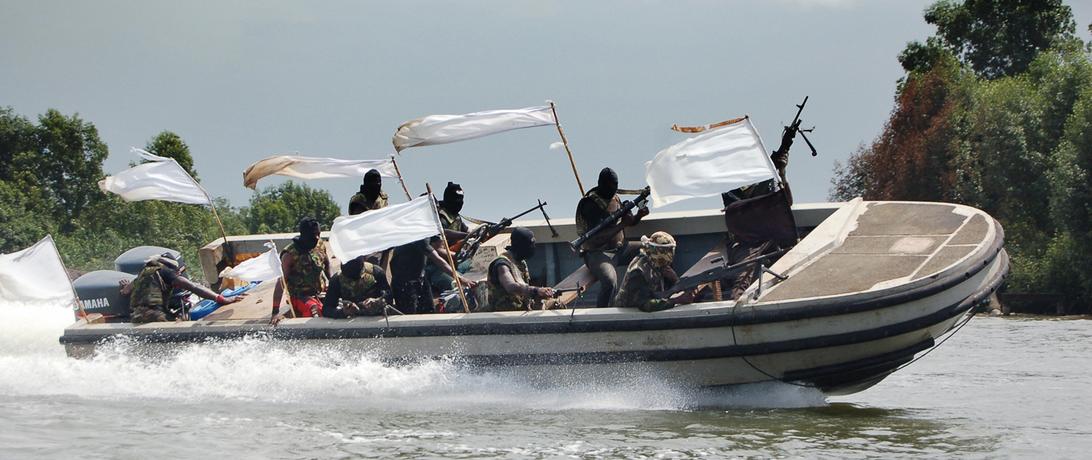While the region possesses a nearly limitless potential for the development of the blue economy through the production of hydrocarbons and newly discovered offshore deposits, the region’s centrality to vital global shipping routes, and the diversity of regional fish stocks, these opportunities also give rise to criminal activity as well.
Through interviews conducted with experts and practitioners in seven countries across the region, the Stable Seas: Gulf of Guinea report examines nine themes of maritime governance and security and their impact on coastal communities and landlocked neighbors throughout the region. Underdeveloped maritime law enforcement capability and legislation, along with inadequate policy implementation have resulted in corruption, weakened rule of law, and political instability. These issues, in turn, give rise to various illicit activities including illegal, unreported, and unregulated (IUU) fishing, piracy and armed robbery at sea, human trafficking, and trading in drugs, arms, and wildlife.
While regionally-led interventions like the establishment of the Yaoundé Code of Conduct have done much to reduce maritime security threats, more engagement is needed to ensure long term sustainable peace and security in the region.
Read the full Stable Seas: Gulf of Guinea report
